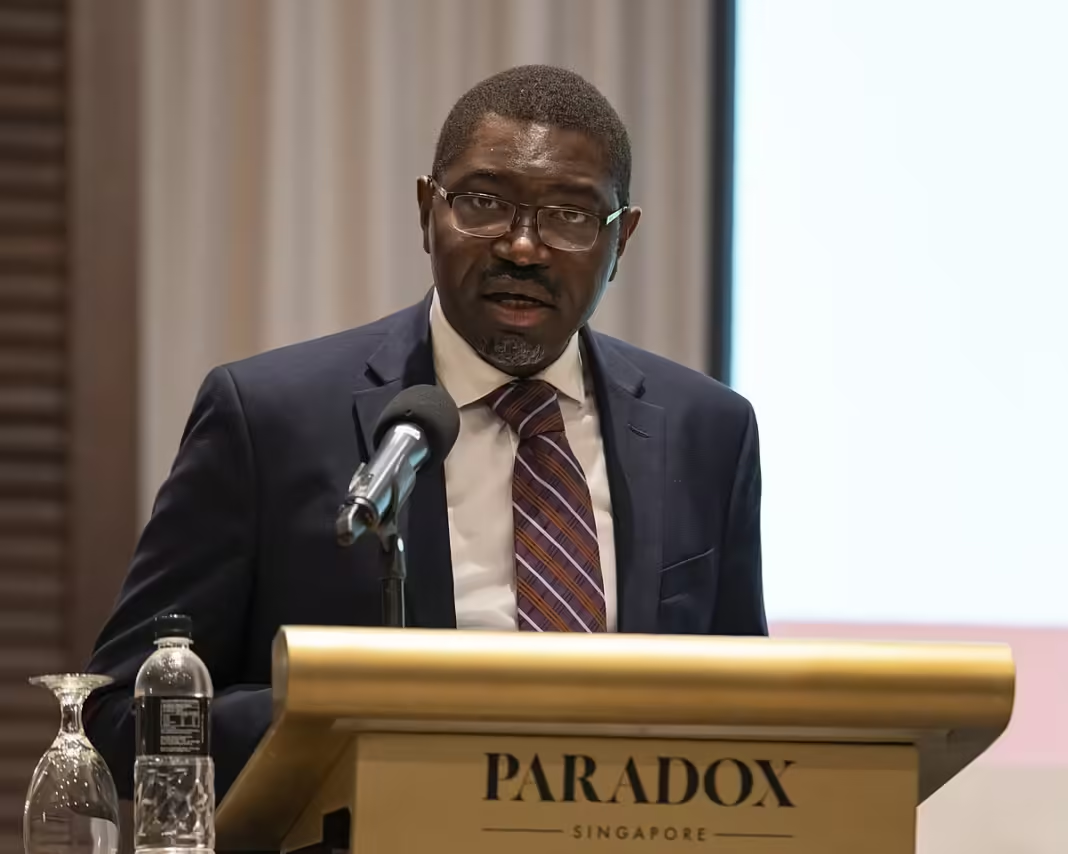The National Oil Spill Detection and Response Agency (NOSDRA) is steadfast in its commitment to enforcing all environmental laws, regulations, and guidelines in Nigeria’s vital petroleum sector.
This commitment was articulated by Engr. Chukwuemeka Woke, Director-General/Chief Executive of NOSDRA, during a courtesy visit from the Oil Producers Trade Section (OPTS) at the Agency’s Headquarters in Abuja on Thursday.
During the visit, OPTS Executive Director Mr. Gwueke Ajaifia extended congratulations on Mr.Woke’s recent appointment, emphasizing that this achievement reflects the government’s confidence in his leadership and wishing him a successful tenure.
Mr. Ajaifia noted that the purpose of the visit was not only to congratulate the DG/CE but also to facilitate introductions and explore potential areas of collaboration between NOSDRA and OPTS, which comprises 25 indigenous oil companies and five foreign operators in Nigeria.
He emphasized OPTS’s commitment to prioritizing environmental conservation within the petroleum industry, seeking a collaborative relationship with NOSDRA, which plays a crucial role among regulatory bodies due to its statutory mandate in environmental management and pollution control.
Addressing key challenges such as pipeline vandalism, crude oil theft, illegal bunkering, insecurity, and excessive taxation, Mr. Ajaifia recognized NOSDRA as a vital partner in fostering a regulatory environment that upholds acceptable standards and international best practices to attract investment in the sector.
The DG/CE of NOSDRA, while expressing gratitude for the congratulatory messages and well-wishes from the OPTS team, acknowledged the strong cooperation that has developed between the agency and the association over the years. He assured the OPTS that his agency is committed to maintaining and enhancing this collaborative spirit, expressing optimism for a significant improvement in their working relationship.
“As a major stakeholder, we have no choice but to partner with your association,” he stated. The DG/CE emphasized that while the primary objective is to maximize oil and gas production to stimulate robust economic growth in the country, the importance of ensuring environmental sustainability—NOSDRA’s core mandate—cannot be overlooked.
The DG/CE criticized the indifferent attitude of certain OPTS members towards attending invitations from NOSDRA regarding complaints from host communities about oil pollution issues. He expressed concern, stating, “As an agency, we need to address the neglect from some of your members in responding to our invitations concerning these critical issues.”
He highlighted that NOSDRA is often the closest agency involved when such matters arise, and neglecting to engage with the agency can escalate tensions with communities and may lead to sanctions from regulatory authorities.
The DG/CE emphasized that under his leadership, ignoring invitations from NOSDRA will no longer be tolerated among non-compliant oil companies.
He urged OPTS to undertake community education and outreach initiatives aimed at raising awareness about petroleum-related crimes, such as pipeline vandalism, crude oil theft, and illegal bunkering. He stressed that these efforts are essential for effectively addressing these issues and promoting social harmony in oil-producing communities.
The DG/CE acknowledged that the current challenges facing Nigeria’s petroleum industry, particularly crude oil theft and illegal bunkering, were not anticipated when NOSDRA was established. This has led to significant difficulties in addressing oil spills resulting from third-party interference or sabotage.
He noted that the administration of President Ahmed Bola Tinubu is diligently working to close regulatory gaps and strengthen enforcement measures to tackle these pressing issues. Additionally, he pointed out that enhancing inter-agency collaboration is crucial for effectively addressing crude oil theft and similar challenges.
The DG/CE expressed optimism that closer cooperation among key stakeholders—including NOSDRA, oil companies, and host communities—will play a vital role in overcoming these challenges.
Source: Nwaorgu Faustinus




